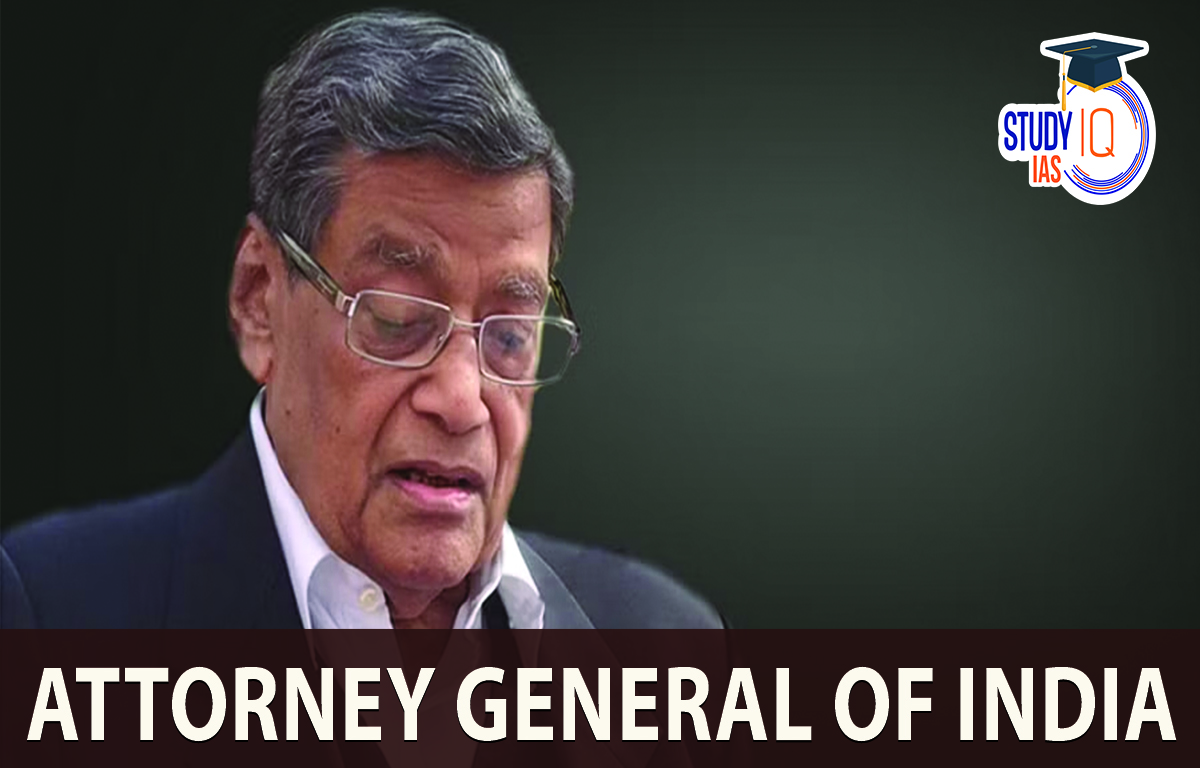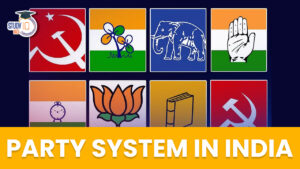Table of Contents
The position of the Attorney General and its responsibilities are briefly described in Article 76 from Part V of the Indian Constitution. The Attorney General is the highest law officer in the country and serves as the main legal advisor to the Indian government. He provides legal advice on various matters and represents the Union Government in the Supreme Court and High Courts.
Read about: Constitution Day of India
First Attorney General of India
The First Attorney General of India, M.C. Setalvad, held the position for the longest time 13 years while Soli Sorabjee held the position for the shortest time. Nevertheless, he was twice appointed to the position.
- MC Setalvad, son of famous advocate Sir Chimanlal Setalvad, quickly made a name for himself as a skilled lawyer known for his strong voice and commitment to ethical standards, treating everyone equally in court.
- As India’s first and longest-serving Attorney General, he played a important role in important legal cases, including the Indo-Pak border demarcation and Kashmir issues, showcasing his legal expertise and strong principles.
- He chaired India’s first Law Commission, advising the government on crucial reforms and helping to shape its future work.
Present Attorney General of India
The current Attorney General of India is R. Venkataramani, who took office on September 23, 2022. He succeeded K.K. Venugopal. R. Venkataramani is a seasoned lawyer with over 42 years of experience in the Supreme Court of India. He was appointed for a three-year term and has expertise in various fields of law, including constitutional law, human rights law, and civil and criminal law.
Background of R. Venkataramani
- Education and Early Career: He registered with the Tamil Nadu Bar Council in 1977 and began his legal career under Senior Supreme Court Advocate P.P. Rao in 1979. He established his practice in the Supreme Court in 1982 and became a Senior Advocate in 1997.
- International Work: In 2001, he was invited to present at a workshop in Geneva organized by the International Commission of Jurists and the UN High Commissioner for Human Rights, focusing on the Optional Protocol to the International Covenants on Economic, Social, and Cultural Rights (ICESCR).
- Government Roles: Venkataramani has been involved in various legal committees and participated in the operations of the International Court of Justice related to the ICESCR in the Afro-Asian region.
List of Attorney General of India 2024
Here’s the complete List of Attorney General of India:
| No. | Attorney General of India | Name of the Attorney General | Tenure |
|---|---|---|---|
| 1 | 1st Attorney General | M.C. Setalvad | 28 January 1950 – 1 March 1963 |
| 2 | 2nd Attorney General | C.K. Daftari | 2 March 1963 – 30 October 1968 |
| 3 | 3rd Attorney General | Niren de | 1 November 1968 – 31 March 1977 |
| 4 | 4th Attorney General | S.V. Gupte | 1 April 1977 – 8 August 1979 |
| 5 | 5th Attorney General | L.N. Sinha | 9 August 1979 – 8 August 1983 |
| 6 | 6th Attorney General | K. Parasaran | 9 August 1983 – 8 December 1989 |
| 7 | 7th Attorney General | Soli Sorabjee | 9 December 1989 – 2 December 1990 |
| 8 | 8th Attorney General | J. Ramaswamy | 3 December 1990 – 23 November 1992 |
| 9 | 9th Attorney General | Milon K. Banerji | 21 November 1992 – 8 July 1996 |
| 10 | 10th Attorney General | Ashok Desai | 9 July 1996 – 6 April 1998 |
| 11 | 11th Attorney General | Soli Sorabjee | 7 April 1998 – 4 June 2004 |
| 12 | 12th Attorney General | Milon K. Banerji | 5 June 2004 – 7 June 2009 |
| 13 | 13th Attorney General | Goolam Essaji Vahanvati | 8 June 2009 – 11 June 2014 |
| 14 | 14th Attorney General | Mukul Rohatgi | 12 June 2014 – 30 June 2017 |
| 15 | 15th Attorney General | K.K. Venugopal | 30 June 2017 – 22 September 2022 |
| 16 | 16th Attorney General | R. Venkataramani | 23 September 2022 – Present |
Provisions for Attorney General
| Article | Description |
| Article 76 |
|
| Article 88 | The right to speak and participate in the proceedings of either House, joint sessions, and parliamentary committees. |
| Article 105 | Powers, privileges, and immunities of Attorney General |
| Removal: The Constitution doesn’t explain how or why he can be removed. He serves as long as the President wants. | |
Appointment of Attorney General
The attorney general is chosen by the President of India. He must be an Indian citizen and have completed 10 years of high court advocacy or 5 years as a judge in any Indian state. He may also be regarded as a prominent jurist by the President. The duration of the Attorney General’s appointment is not specified in the Constitution. The Constitution is also silent regarding the removal procedure and the justifications for removal. As a result, they are subject to the president’s whim and are thus subject to removal at any time. He or she can also step down by giving the President a letter of resignation. There are no constitutional limitations on the Attorney General’s remuneration, and it is determined at the President’s discretion.
Attorney General of India Salary
| Nature of Work | Fees of the Attorney General |
| Appearance in Courts outside Delhi | ₹40,000/- per day per case |
| For use as a written argument before the Supreme Court, the High Court, inquiry commissions, tribunals, and other similar bodies | ₹10,000/- per case |
| For providing comments on case statements sent by the Ministry of Law | ₹10,000/- per case |
| Settling Statement of Case | ₹6,000/- per case |
| Settling pleadings (including affidavits) | ₹5,000/- per pleading |
| Applications and other petitions for special leave | ₹5,000/- per case per day |
| Article 143 suits, writ petitions, appeals, and references | ₹16,000/- per case per day |
Limitations of Attorney General
Despite the powers associated with the position, the Attorney General operates under certain limitations:
- Not a Member of the Cabinet: The Attorney General is not part of the Central Cabinet and cannot vote in Parliament.
- Conflict of Interest: Must avoid situations that may create conflicts of interest and refrain from advising ministries or departments directly unless through the Ministry of Law and Justice.
- No Full-Time Employment: The Attorney General is not a full-time advisor to the government and can practice privately.
- Representation Restrictions: Cannot represent clients in criminal cases without government permission.
Attorney General of India UPSC
- The Union Executive includes the Indian Attorney General (AG). He is the top law enforcement official in the nation. In the Indian Territory, he is eligible to appear in any court.
- When he participates in the proceedings of the Indian Parliament, he has the following rights:
- He has the right to speak; He has the right to participate in the proceedings of both Houses of Parliament and their joint session; and He has the right to participate in any committee of the Parliament of which he may be named a member.
- He is not regarded as a government employee, and he is not prohibited from practicing law privately.
- The Attorney General has the right to speak and participate in proceedings of Houses of Parliament or their joint sitting, as well as any committee of the Parliament of which s/he may be named a member, but without the right to vote.


 Maharashtra Bill to Curb Urban Naxalism,...
Maharashtra Bill to Curb Urban Naxalism,...
 Party System in India, Feature, Importan...
Party System in India, Feature, Importan...
 Consolidated Fund of India, Meaning and ...
Consolidated Fund of India, Meaning and ...





















